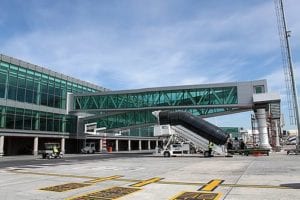Upington International Airport joined the 2016 Director’s Roll of Excellence for being ranked in the top five airports for its category, size and region from 2006 to 2015. The airport was one of only four airports worldwide to receive the recognition in 2016.
Airports Company South Africa and four of its airports received top honours at the recent 27th Airports Council International (ACI) Airport Service Quality (ASQ) Awards. King Shaka International Airport, Cape Town International Airport, Bram Fischer International Airport and Upington International Airport all scooped top positions in their categories in the annual ASQ Survey for their customer service excellence, as recognised by their passengers. King Shaka International Airport claimed first place in the Best Airport by Region category while Cape Town International Airport walked away with third place in the same category. Cape Town International fared better in the Safety Awards and was crowned Best Airport in Africa with over 20 000 air traffic movements. Two of the company’s regional airports were also honoured. Bram Fischer International Airport took first place in the Best Airport by Region (under 2 million passengers) category and Most Improved Airport.







